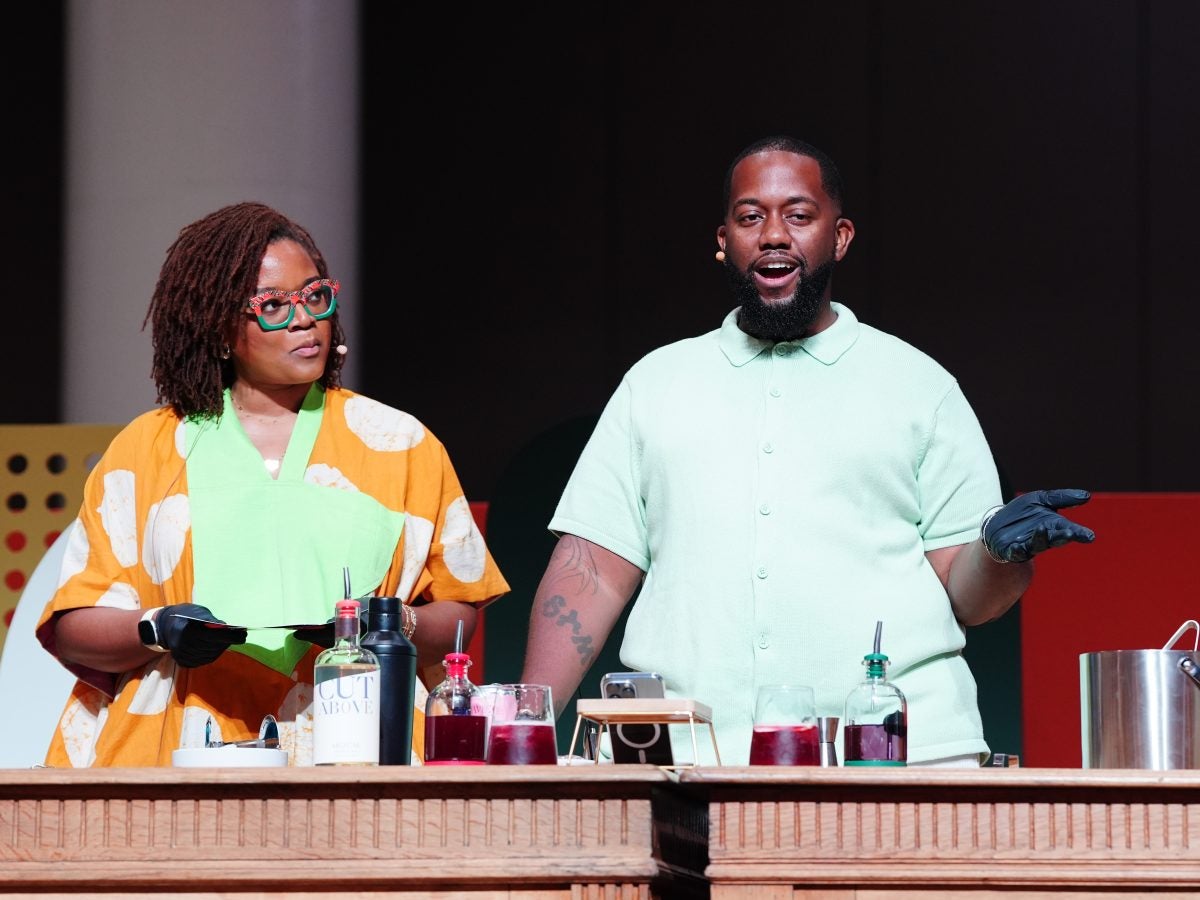
Mocktails are trendy and have recently become increasingly popular among multiple age groups.
Unlike traditional alcoholic drinks, mocktails focus on health consciousness and holistic wellness while providing the illusion of an actual cocktail.
As a result, mocktails are steadily becoming more integrated into restaurant menus, bars, and social gatherings.
On July 7th, we gathered for our Let’s Toast: Something for the Sober Curious panel at the Food and Wine Festival Experience. Senior Editor Victoria Uwumarogie led an engaging demonstration with experts in alcohol-free libations: New Orleans-based experts Rhadell Green of Sober Bar Babe, David J. Wallace of Dream House Lounge, and Aja Wolfe Sober Chic of The Sober Social in Atlanta. Green, Wallace, and Wolfe got on stage and created a safe space for people to enjoy a sober sip. Each made the following mocktails: Lavender Dream, Creole Baby, and more.
Here are their top tips for transitioning to mocktails:
Be open: “I think the growing desire to try mocktails comes from within our own experience, pushing us to want to change. It’s an individual journey and can be considered a transition. Some people are addicted to alcohol and can’t stop drinking,” said Green.
Opt for mocktails that are sip-worthy. “When I’m out and I’m drinking, I want something that’s SIP-worthy, that I can take my time with. I feel like there is a piece of cocktail culture in the ritual of sipping that makes you feel good and a part of that intimate space,” said Wolfe.
Get creative: You can add elements to your mocktails, like mushrooms. “So if you come to Dream House Lounge, we have shroomtails, our mushroom cocktails. Our mushroom cocktails will have Lion’s Mane, cortisol Reishi, and Turkey Tail in them, and I promise you, you will be mellowed out. So we’ve been very intentional about adding in super plants and functional mushrooms, which are considered conscious cocktails,” Wallace stated.
Wallace believes that consuming mocktails can also be healing. “We deserve to heal. Black people need to heal. We deserve to rest. We deserve to relax. We deserve to be celebrated. We deserve to acknowledge and celebrate our ancestors,” he said.
He continued, “Your healing journey is your healing journey. So, I always tell people you must take charge of your journey. Nobody’s going to come and save you. So if you are thinking about your sobriety, if you’re sober, conscious or sober, curious, part of asking for that nonalcoholic beverage is advocacy, and it’s also providing education to bartenders.”





